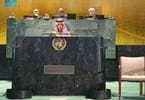As reported recently, the Uganda Wildlife Authority (UWA) rangers and staff live dangerously when deployed at Mt. Elgon National Park, as attacks by illegal encroachers, poachers, and timber thieves have caused them numerous injuries and even several deaths while executing their duties in defense of conservation, wildlife protection, and maintaining a crucial water catchment area.
However, as in many cases, there are two sides to each story and the Uganda Human Rights Network last week tried to spoil UWA’s celebrations of the UN Year of the Gorilla 2009 and their much-publicized launch of “Friend a Gorilla” campaign when they released a carefully-timed and targeted broad side of allegations against the national wildlife management body. Those familiar with the circumstances of Mt. Elgon since the park’s status was changed from a less-protected forest reserve to a fully-fledged national park in 1993, looked at the material, including some graphic pictures of alleged torture victims at the hand of UWA staff.
According to eTN own research, in recent days the original size of the former forest reserve – incidentally also a national park across the border in Kenya and part of a trans-boundary cooperation between UWA and the Kenya Wildlife Service – was gradually reduced between 1923, and the time of Uganda’s independence in 1962, reflecting growing populations and their requests for more agricultural land before eventually a position was taken by government that the existing boundaries would now have to stand if conservation was to retain any meaning at all. The widened protection of the mountainous forest as a national park was, in fact, aimed to sustain the livelihood of neighboring communities and Ugandans as a whole, as even then the function of the mountain as a water catchment area was recognized, permitting the constant flow of water in streams and small rivers emerging from Mt. Elgon and being used for a variety of purposes by homesteads and villages downstream.
Yet, since independence, the population around the park has more than tripled, and while there is undoubtedly ongoing and constant demand for opening up the park for people to live in, the need to protect the water sources for all those added numbers has become even more important today than it was 15 or 20 years ago. Hence, it is argued by UWA and the conservation fraternity that letting go of the park, or even parts of it, would in coming years make the life of communities around the mountain much worse, instead of better as suggested by political opportunists and inciters promising “heaven on earth” to those willing to listen and ready to do their bidding by launching regular attacks on ranger camps and wardens on patrol.
UWA claims to have cleared about 2,000 hectares of illegally-occupied and cultivated land already, which is said to be crucial to the protection of water sources and to prevent landslides and soil erosion, especially with the onset of the unusually heavy el Nino-induced rains. Reforestation and related repair measures are underway in such areas, too, as it was pointed out.
In a discussion with UWA’s executive director Moses Mapesa, he categorically rejected any suggestion and allegations that UWA would habitually or deliberately engage in torture or extrajudicial activities and denied that this was ever the organization’s method of working or indeed a matter of policy as has been suggested by its opponents. Having been the organization’s director of field operations before being appointed to the position of CEO, and being widely respected as an honorable and honest person, not just in Uganda but the wider eastern African region, gives even further credence to his denials.
While Mapesa did not rule out collusion by individual rangers in permitting people into the park to create shambas [small farms] in a corrupt fashion, he vowed to bring those errant staff to book, while he also vowed to pursue through police and other legal channels those who injured or killed his staff in past weeks and months.
Mapesa went on to state that some of the pictures published by human rights activists last week are in fact of UWA staff injured during attacks and NOT of innocent villagers beaten up by UWA personnel and that these pictures were provided to the media by UWA as proof of those attacks on rangers and wardens.
In closing our conversation, Mapesa laid substantial blame on the doorsteps of aspiring politicians and political charlatans, who incited crowds repeatedly in 2000, 2001, 2005, and again of late, and who were ultimately responsible for the resulting bloodshed during clashes of riotous encroachers, poachers, illegal farmers, and timber thieves on one side and the law enforcement personnel of UWA and other security agencies on the other side.
This is, incidentally, the same pattern experienced by the National Forest Authority, which has also seen their field staff under regular attack when trying to enforce the law governing the management of central forest reserves. Earlier this week, NFA released yet more details about fresh forest invasions affecting nearly 6,000 hectares of gazetted forests while government is pondering what to do and sitting on its hands instead of strongly supporting the national guardian body of forests.
The good news now is that UWA, in conjunction with community leaders of integrity, has worked out a draft agreement with nearby villages, which will permit the tightly-controlled sustainable use of the boundary sections of the forest park, which includes bee keeping, collection of medicinal herbs and plants, and limited use of timber by designated beneficiaries in quantities ensuring the long-term sustainability of such an economic partnership.
The emerging dangers, in particular with an eye on the 2011 elections in Uganda, have, however, been underscored when the organization’s PRO, during a session with journalists in Bwindi on her own within the context of answering a question, introduced it into one of her answers but would then not be drawn further into the subject. Playing with conservation for short-term political gains can have disastrous consequences as the severe impact of the Mau deforestation and destruction across the border in Kenya amply demonstrates. There, for the sake of votes, politicians have turned a blind-eye for decades on the emerging problems and only now that the fallout from the crippled key water catchment area can no longer be hidden and is causing more problems than potentially widespread evictions, is a half-hearted reaction beginning to emerge from the government in Nairobi.
Recent pictures showing Mt. Kilimanjaro’s top literally bare of snow and ice, the ongoing shrinkage of the Rwenzori icecaps, and the more frequent drought and flooding cycles are all a final wake-up call – mankind’s long-term survival is at stake, and the forthcoming Copenhagen Climate Conference will be the clearest indication yet of how serious the governments of developed nations, threshold nations, and very much our own African governments really are to save the planet from destruction.
That destruction always begins on a small scale somewhere, which is why UWA needs all the support and political backing to prevent further encroachment and parceling off at the Mt. Elgon National Park.
Seeking cheap publicity stunts like the ones by self-proclaimed human right activists are certainly not the way forward. No rangers have been taken to court for causing bodily harm, for torture, assault, or murder up to this point, and most likely for lack of evidence as otherwise those now making these allegations once again would have equally reported prosecutions and convictions – none of which happened.
In conclusion, these exact sentiments were also overwhelmingly voiced by those sections of the local print and electronic media considered responsible, while a distinct group of other media was trying to make cheap political capital out of the sad events when they highlighted in a one-sided manner the allegations against the Uganda Wildlife Authority and used it as a platform to attack government in general about all and sundry.
WHAT TO TAKE AWAY FROM THIS ARTICLE:
- According to eTN own research, in recent days the original size of the former forest reserve – incidentally also a national park across the border in Kenya and part of a trans-boundary cooperation between UWA and the Kenya Wildlife Service – was gradually reduced between 1923, and the time of Uganda's independence in 1962, reflecting growing populations and their requests for more agricultural land before eventually a position was taken by government that the existing boundaries would now have to stand if conservation was to retain any meaning at all.
- The widened protection of the mountainous forest as a national park was, in fact, aimed to sustain the livelihood of neighboring communities and Ugandans as a whole, as even then the function of the mountain as a water catchment area was recognized, permitting the constant flow of water in streams and small rivers emerging from Mt.
- Hence, it is argued by UWA and the conservation fraternity that letting go of the park, or even parts of it, would in coming years make the life of communities around the mountain much worse, instead of better as suggested by political opportunists and inciters promising “heaven on earth”.






















